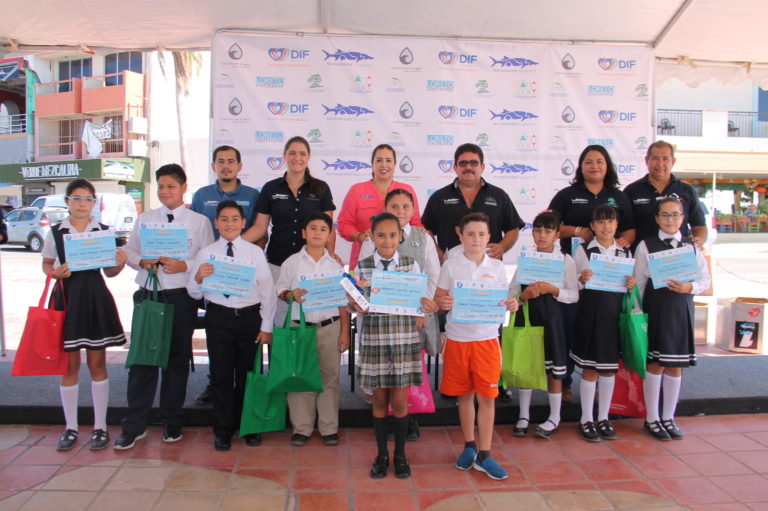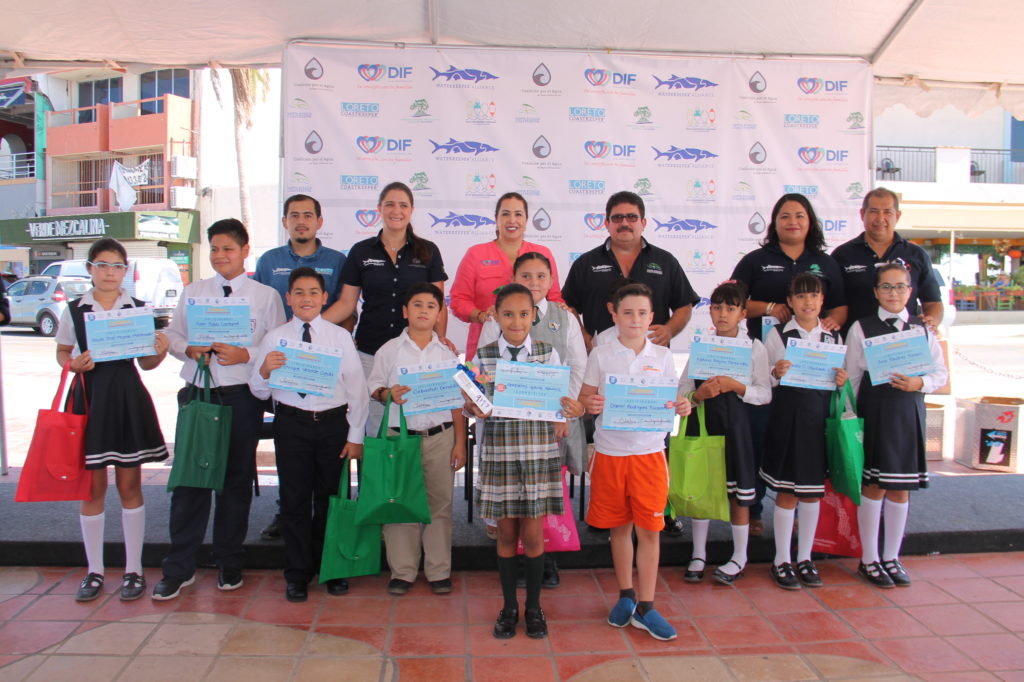
There is an astounding amount of plastic in the world’s waterways.
Every year, an estimated 5 to 14 tons flow into our oceans from coastal areas. Sunlight, wind, ocean current, and heat shred it into smaller pieces that look like food to marine life. It’s estimated that more than half the world’s sea turtles and nearly all of marine birds ingest plastics debris. Plastic debris has even been found in the Mariana Trench, the deepest point in the world’s oceans.
With a problem as pervasive as plastic pollution, how do you even begin to address it? The current consensus is to start with single-use plastic —bags, bottles, straws, etc.— as a first step in what should be part of a much more fundamental shift away from plastic entirely.
In June of 2018, the United Nations released an analysis of policies around the world limiting the use of single-use plastics. The report highlighted that the solution lies with governments, businesses, and people. In Mexico’s Baja California Peninsula, six Waterkeeper Organizations are doing their part to heed this call. The Waterkeepers protect a region rich in marine and terrestrial biodiversity that is threatened by habitat destruction, indiscriminate use of natural resources, and pollution from fast-paced tourist and residential developments, mining, agriculture, and commercial aquaculture. A booming local population and tourism industry have led to soaring levels of plastic consumption and, of course, pollution. For more than a decade, Waterkeepers have led cleanups of local beaches and streams and educated the public on the severe impacts of plastic debris pollution on local coastal waterways.
Today, the Waterkeepers’ efforts in Baja go beyond local cleanups—they’ve successfully lobbied and urged state and local governments to tackle the issue. This past summer their efforts paid off across the peninsula. After months of hard work, La Paz Waterkeeper and 35 other local organizations successfully persuaded the state legislature of Baja California Sur—the lower half of the peninsula—to ban the use of single-use plastic straws and bags, as well as polystyrene containers. Moreover, the City Council of Ensenada—in the upper half of the peninsula—banned plastic bags and utensils in commercial establishments. And Tijuana became the first Mexican city on the U.S. border to approve a ban on disposable plastic bags. “This Is the first step to turn Tijuana into a plastic-free city, create healthy living conditions for local communities, have cleaner beaches and build a sustainable future for the city,” said Tijuana Waterkeeper Margarita Díaz.
Baja California Sur is the first Mexican state to ban polystyrene. That state’s ban, as well as the bans in Tijuana and Ensenada, are setting the stage for future action elsewhere in the country. “Currently throughout Mexico, there are more than 15 municipal and state initiatives aimed at reducing the consumption of single-use plastics. What we do at the local level contributes to efforts at the national and global level,” said María Ugarte, Executive Director of La Paz Waterkeeper. María, however, acknowledges that “the bans constitute just a first step of a long-term effort to educate the public, bring about behavioral change, and encourage a fundamental shift away from plastics.”
Building on their recent successes, the Baja Waterkeepers have now set their eyes on expanding existing efforts and building new alliances with government and industry. In December 2018, Mexican President-elect Andrés Manuel López Obrador will come into power. His party, MORENA, has promised to work with communities to create more security and prosperity. Our Waterkeepers will be working to elevate their most critical conservation issues —including plastic pollution—to this new administration.
Waterkeepers are making sure that businesses are part of the effort to curb plastic pollution as well. Businesses have until the end of 2019 to comply with the bans and will likely struggle to find viable and affordable alternatives to single-use plastics. La Paz Waterkeeper and Tijuana Waterkeeper both are actively developing partnerships with manufacturers of biodegradable alternatives to fill the gap. Additionally, Tijuana Waterkeeper is looking to expand its Ocean-Friendly Restaurant campaign which encourages local eateries to set up voluntary measures to reduce plastic waste. Loreto Coastkeeper plans to launch an initiative to influence the purchasing policies of at least 50 local businesses. And San Quintín Bay Waterkeeper seeks to negotiate an agreement with the local fishing industry to remove derelict aquaculture plastic gear and infrastructure.

Public education also plays a vital role. Cabo Pulmo Waterkeeper will educate 500 local students, as well as local community leaders, tourism outfitters, and restaurants, on the impacts of plastic pollution, so that they, in turn, can educate others. Long-term behavioral change is not attainable through brief or stand-alone awareness campaigns. Thus Baja Waterkeepers will have to embed their messaging into year-round workshops and community meetings.
Loreto Coastkeeper Hugo Quintero stresses that much remains to be done and that the devil might be in the details. “There is still much work to be done including setting standards for biodegradability of materials.” He pointed out that some materials that are considered highly biodegradable on land aren’t necessarily very biodegradable in water. But on a hopeful note, he added that “Waterkeepers will continue protecting Baja’s waterways, which provide environmental services that in turn ensure the peninsula’s economic, social and cultural wellbeing. The plastic bans are a first step. We’re just getting started.”